Epic Care Doctors: The Best Community/Team-Based Healthcare
Putting together community/team-based care teams supports healthcare providers best but also, ultimately, our patients as well. This is why Epic Care has embraced it and all of its benefits.
This structure of our team-based healthcare works by ensuring:
- The different healthcare professionals involved in a patient’s treatment work together to make the process more streamlined, efficient, and personalized.
- Teams can consist of healthcare providers from a range of disciplines who meet with patients to build and maintain strong relationships.
- Providers work collaboratively with patients to offer high-quality care.
- When necessary, expert physicians can work closely with other community providers for the most effective treatment plans.
With Epic Care community care, “members of the team share information and assist in decision making based on their unique skills — all with the common goal of providing the safest, best possible care to patients,” the American Medical Association explained.
This setup is beneficial for patients who require a myriad of therapies. For example, Epic Care treats patients with chronic or complex conditions that may see several physicians, pharmacists, nurses, and other healthcare providers during their care.
Having different disciplines involved in a patient’s team helps “ensure that the full range of patients’ health and social needs are addressed,” according to the Center for Health Care Strategies & State Health Access Data Assistance Center (CHCS/SHADAC).
Epic Care’s Team-Based Healthcare Actively Prevents Physician Burnout
Epic Care chose this structure because it helps make our patients have quicker and safer care.
Specific to our doctors, it can reduce burnout. According to a report in the medical journal JAMIA, this is “a syndrome of emotional exhaustion, depersonalization and a low sense of personal accomplishment” that affects patient care drastically.
At Epic Care, the patient is the priority. Because of this, we work our hardest to evolve our teamwork with rigorous research, care, and virtue so our doctors work in their best conditions.
As recently as 2019, evidence continues to show that team-based healthcare “makes providers happier or less stressed,” researchers at the National Academy of Medicine (NAM) explained in a report.
They added “this can, in turn, result in better relationships with patients and potentially lower rates of physician burnout.” The existing evidence demonstrates a generally positive association between team-based care and clinician well-being,” they expanded.
Team-Based Healthcare Lightens the Load on Epic Care Physicians
The primary way team-based healthcare helps physicians is by sharing duties. Getting other providers involved in patient care “improves practice efficiency[,] resulting in higher clinician/staff satisfaction and work-life balance,” explained the General Practice Services Committee (GPSC).
Nearly 44% of American physicians reported that they had symptoms of burnout in 2017, JAMIA reported, also identifying “poor electronic health record (EHR) usability and time-consuming data entry” as some of the factors contributing to physician burnout.
Epic Care’s state-of-the-art communications systems and team hand-off protocols also avoid physician burnout, allowing the doctor to focus on you, our patients.
Take this scenario. A typical medical appointment involves four steps:
- Gathering data
- Doing the physical examination and evaluating the information collected
- Making decisions
- Educating the patient and putting the treatment plan into action
Traditionally, physicians performed most or all of these steps. However, at Epic Care, the process is streamlined and our doctors handle the jobs they’re qualified to do in a team-based healthcare setting and delegate the other tasks to clinical assistants.
“The clinical assistant handles much of the data gathering, including documenting the patient’s complaints and gaining additional detail through questioning,” explained an American Academy of Family Physicians (AAFP) article.
With this liberated time, our Epic Care physicians can focus on you, our patient and “can develop protocols and templates based on specific patient needs and chronic conditions that direct the clinical assistant’s questioning.”
“Collaboration between physician and non-physician team members can improve timely access to basic primary care, after-hours care and extended health services increasing patient satisfaction,” the GPSC noted.
At Epic Care, our providers stay connected throughout a patient’s treatment. That collaboration helps them avoid unnecessary steps, such as repetitious tests, “and addresses incongruities in care, which can ultimately lead to better health outcomes,” according to PatientEngagementHIT. This makes care more efficient and more affordable, which benefits the patients and their healthcare providers.
Our doctors, therefore, can see more patients during the day, which helps the practice financially and gives patients more opportunities to receive care.
With this community care structure, we find our staff ready, refreshed, and prepared to help our patients. Additionally, freeing up our doctors’ time can benefit the practice and patients in even more ways.
At Epic Care, our doctors have noted that they feel more satisfied with their work since implementing a team-based approach. Also, patients feel heard, seen, and responded to quickly.
Would you like to experience Epic Care’s efficient, compassionate community care approach?
To learn more about how Epic Care’s team-based approach to healthcare can benefit you or learn the high-quality services it offers throughout the Bay Area, call (925) 255-1066 or visit epic-care.com.








